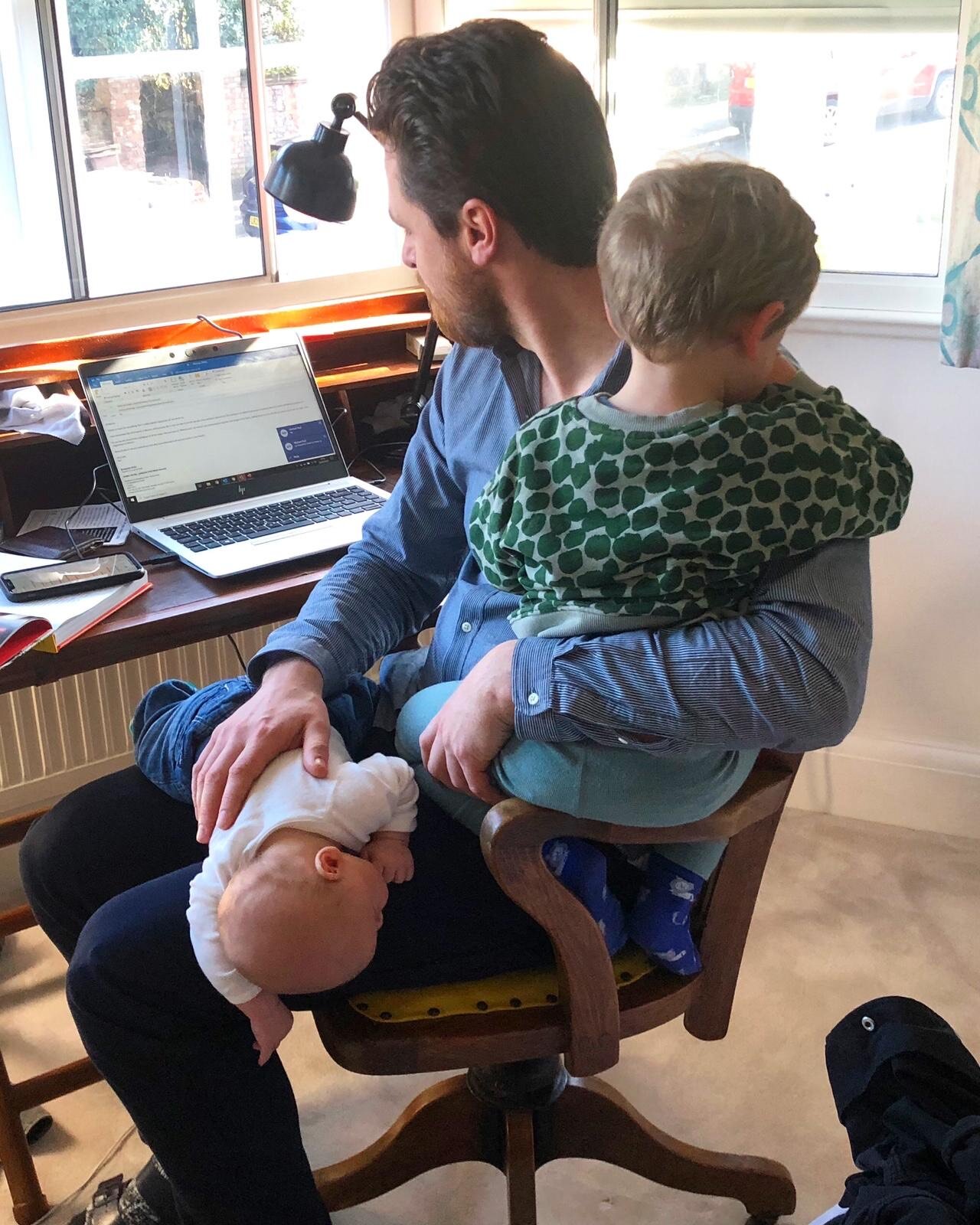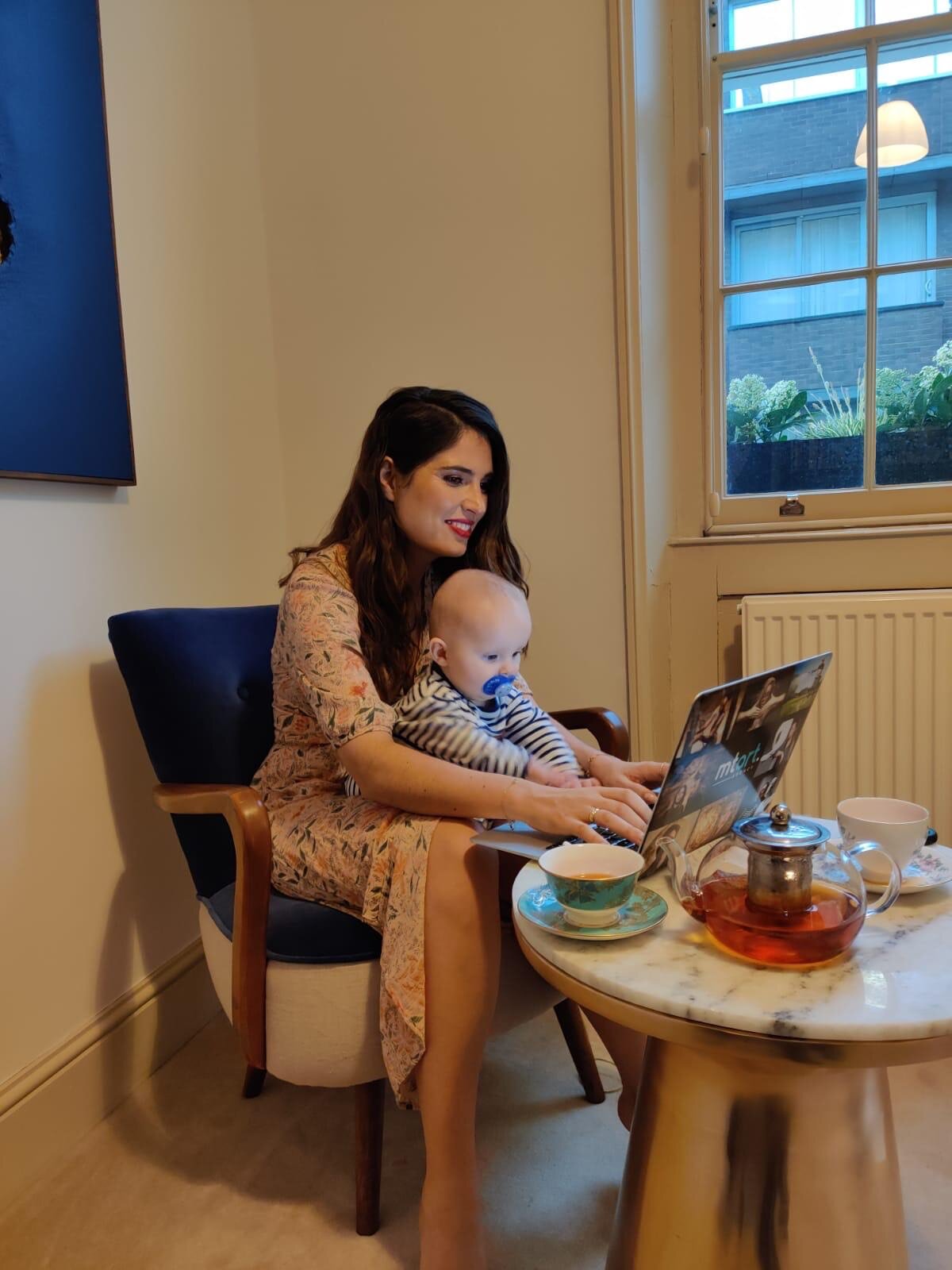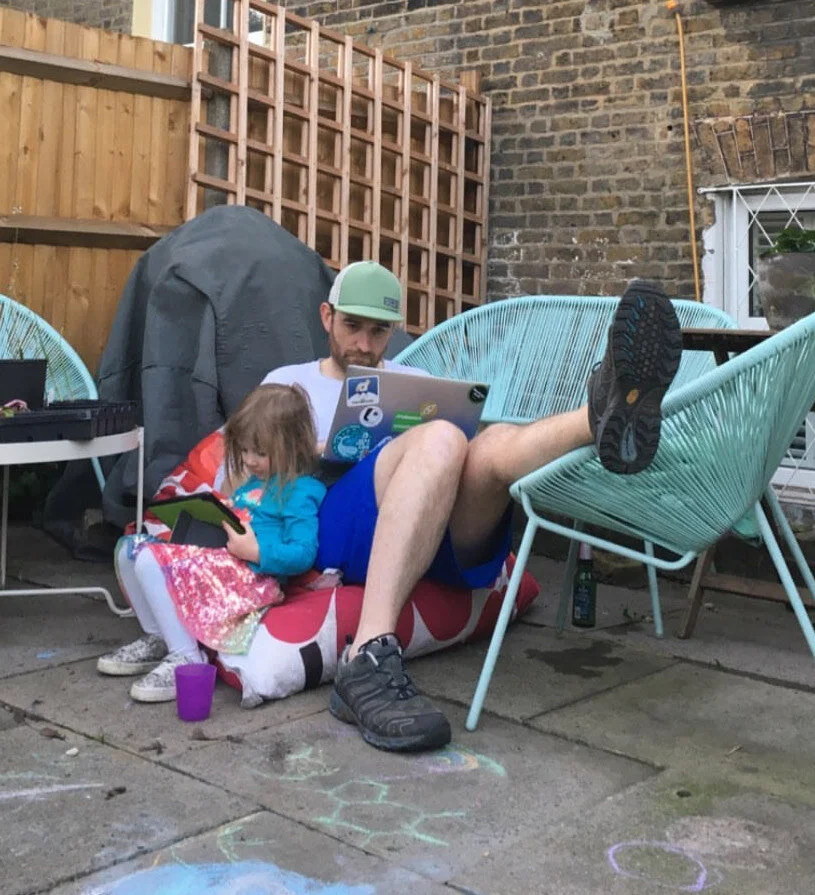11 ways employers can support working parents during COVID-19
Dear employers, here are 11 ways you can support employees who are parents during COVID-19
Before we begin, make sure all your employees know exactly where they stand when it comes to payment, contracts, bonuses, pensions, holiday pay, sick pay, parental leave and working from home. I know it's a shit show (my accountant is doing a great job of helping as many people as they can get to grips with the policies) but it's your responsibility and if you don't know the answers and the numbers don't look good - have the conversation. Honesty is the best policy right now. Ok, here we go...
Accept the new reality
It’s time to accept that the traditional 9-5 is dead. This means it’s time to be task-oriented, not time-oriented. Accept (and show your team this acceptance) that parents (as well as non-parents) are entrenched in an extraordinary balancing act. Accept that women are feeling this burden more acutely.
This is a picture of Allison who is a mental health team lead. Her child care set up is last-minute planning with her partner and praying to the nap gods that her little girl takes a nap during the date. She's trying to split the week 50/50 with her partner. She has client meetings when her daughter is with her dad and when she naps Allison does admin.
Trust, trust, trust
Trust your people to be doing their best in difficult and unprecedented circumstances. Give people even more opportunity than usual to look after themselves. Almost every single one of us is worried about ourselves, our parents, our grandparents, our relatives abroad or friends and family with existing health issues. People’s capacity for work is understandably diminished.
This is a picture of Beth who has been a single mum for 4.5 years. She is a Principal Policy Manager. Now her little boy isn't at school, her sister who lives next door and screen time are her childcare.
Acknowledge the discomfort
Acknowledge that it’s uncomfortable having colleagues see the inside of our busy/messy/full/noisy house. Psychological safety takes on new meaning when we’re bringing our work and our colleagues into our homes.
Restructure the working day
Let people know they can restructure the working day to suit them and their families best. People don't need to work at the same time to get the work done. Accept that it’s unlikely parents will be able to work 8 hours a day every single day. For example, you might want to move the time of your team meeting.
This is a picture of Ben, a Hotel F & B Director. His partner is on mat leave. She is doing the lions share and Ben takes over when he finishes work in the evening.
Add a parent code to timesheets
I’m not a fan of timesheets at all but I know they are still a reality for many. You might want to add a "parenting" code to your timesheets so parents can record 40 hours or whatever they work per week, without worrying that every minute they parent needs to be "made up" with additional work in the evenings.
This is a picture of Marine Tanguy, CEO MTArt Agency. Marine and her partner are paying their nanny to stay in her own house. Marine has been taking care of her baby on her own for the past two weeks.
Encourage people to check in with their kids
Make sure your people feel safe and secure to build in time during the day to check in with their kids. Be clear with other colleagues that this time needs to be respected.
This is a picture of me and my little boy who is two. My partner is a full-time carer so my work hasn't been impacted upon too much. Our son no longer goes to his childminder or nursery so my partner is caring 6 am-7 pm five days a week.
Create sharing roles
Now is the time to consider role sharing. This would allow for role coverage but also enable parents with the difficult reality of working with kids to be more present at home during this difficult time.
Kid-friendly meetings
Let everyone know it's OK if children appear during calls and meetings. In fact, if kids do appear during a work conversation, take a second to say hello. School-age children, in particular, are keen to understand what parents are doing and maybe craving the social interaction they're missing from school.
This is a picture of Nic who's a product lead for an energy company. Nic and her partner have two desks in two separate rooms, both working about 8.30 - 6 in the evening. They drive to pick their nanny up every morning and drop her home again in the evening. They've all been isolating for over 2 weeks.
Use compassionate leave
Ensure your people know they can use compassionate leave if they need a day off to look after their children or simply need time to recharge.
Send the kids a gift
Some organisations are sending the kids of their workers a special treat in the post or via email.
This is a picture of Liam, a senior data analyst who is tag-teaming with his partner Molly. When one of them is in meetings, the other spends time with their little girl but Molly has the most meetings so Liam is doing the lion's share.
Create a channel for parents
Some organisations have created a Slack channel for our parents to share resources from online exercise classes to audiobooks or activity sheets.
For employers of pregnant people; you must make your work environment safe for pregnant people. This means they must be allowed to work from home or, if they have to go to the office, they must be able to socially distance themselves from others - this includes on their commute to work. If this is impossible, by law, you must suspend them ON FULL PAY. Please email Sarah@pregnantthenscrewed.com if you need advice or support on this.
For the parents reading this; here are my top ten tips on working at home with little people.
What have you seen or heard employers do to make this easier for parents?
Thank you to Sarat Pediredla, Kari Owers, Zoe Wheeler, Sascha Evans, Ruth Lund, Vicky Grinnell - Wright, Liz le Blanc and Sophie Smallwood for sharing their insights that informed this article.







